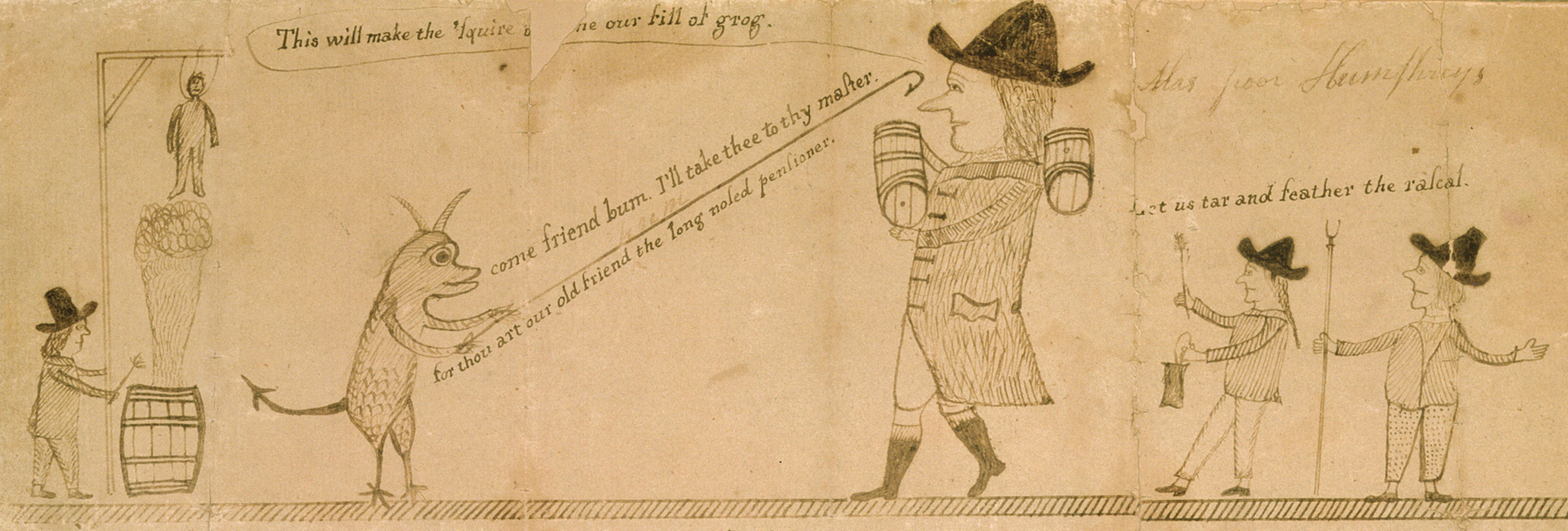The American Promise:
Printed Page 235
The American Promise Value
Edition: Printed Page 224
The Whiskey Rebellion
Hamilton’s plan to restore public credit required new taxation to pay the interest on the large national debt. In deference to the merchant class, Hamilton did not propose a general increase in import duties, nor did he propose land taxes, which would have fallen hardest on the nation’s wealthiest landowners. Instead, he convinced Congress in 1791 to pass a 25 percent excise tax on whiskey, to be paid by farmers bringing grain to the distillery and then passed on to whiskey consumers in higher prices. Members of Congress from eastern states favored the tax—
Not surprisingly, the new excise tax proved unpopular. In 1791, farmers in Kentucky and the western parts of Pennsylvania, Virginia, Maryland, and the Carolinas forcefully conveyed their resentment to Congress. One farmer complained that he had already paid half his grain to the local distillery for distilling his rye, and now the distiller was taking the new whiskey tax out of the farmer’s remaining half. “If this is not an oppressive tax, I am at a loss to describe what is so,” the farmer wrote. Congress responded with modest modifications to the tax in 1792, but even so, discontent—
In western Pennsylvania, Hamilton had one ally, a stubborn tax collector named John Neville who refused to quit even after a group of spirited farmers burned him in effigy. In May 1794, Neville filed charges against seventy-

In response, President Washington nationalized the Pennsylvania militia and set out, with Hamilton at his side, at the head of thirteen thousand soldiers. A worried Philadelphia newspaper criticized the show of force: “Shall torrents of blood be spilled to support an odious excise system?” But in the end, no blood was spilled. By the time the army arrived in late September, the demonstrators had dispersed. No battles were fought, and no shots were exchanged. Twenty men were rounded up and charged with high treason, but only two were convicted, and Washington soon pardoned both.
Had the federal government overreacted? Thomas Jefferson thought so; he saw the event as a replay of Shays’s Rebellion of 1786, when tax protesters had been met with military force (see “The Requisition of 1785 and Shays’s Rebellion 1786–1787” in chapter 8). The rebel farmers agreed; they felt entitled to protest oppressive taxation. Hamilton and Washington, however, thought that laws passed by a republican government must be obeyed. To them, the Whiskey Rebellion presented an opportunity for the new federal government to flex its muscles and stand up to civil disorder.
REVIEW Why were Hamilton’s economic policies controversial?